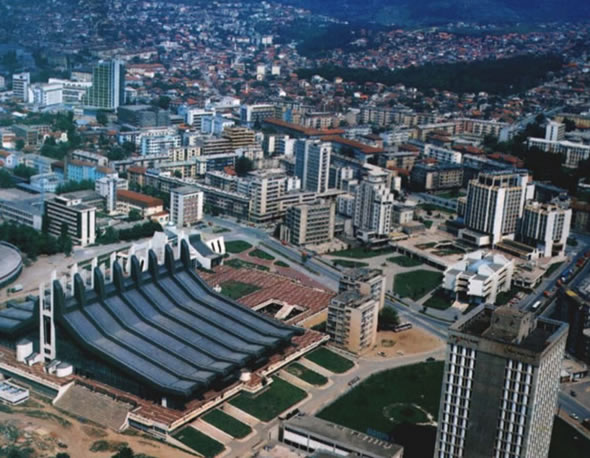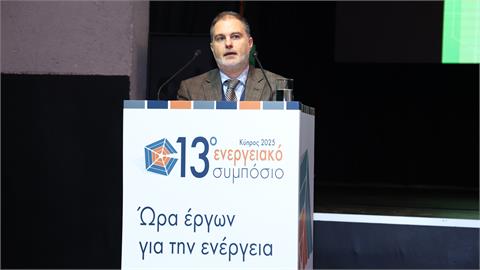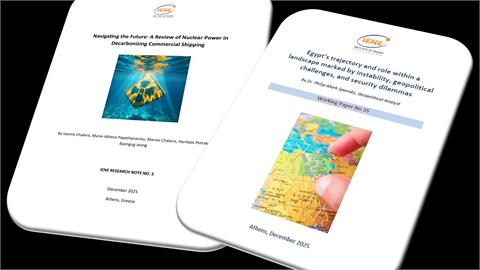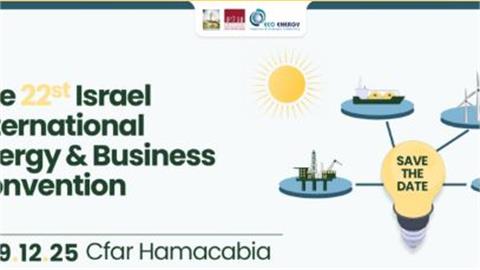Responding to an invitation by Kosovo’s Minister of Economic Development Mr. Fadil Ismajli, who also happens to be an associate member of IENE, a team from IENE visited Prishtina on March 10-12 for a series of meetings with government officials and senior executives of local energy organizations but also to conduct a seminar on energy policies and strategies
Responding to an invitation by Kosovo’s Minister of Economic Development Mr. Fadil Ismajli, who also happens to be an associate member of IENE, a team from IENE visited Prishtina on March 10-12 for a series of meetings with government officials and senior executives of local energy organizations but also to conduct a seminar on energy policies and strategies. IENE’s team comprised the Institute’s Executive Director, Mr. Costis Stambolis, Mr. Costas Theofylactos an engineer, ex- head of CRES and member of the Institute’s executive-committee and Mr. Nicholas Sofianos, IENE’s research project coordinator. Present in Kosovo was also Mr. Nicholas Frydas an IENE partner and member of the BoD who visited Prishtina in his capacity as advisor to the Ministry of Economic Development, seconded by IFC which is advising the government of Kosovo on the development of its extensive lignite recourses.
The three hour seminar took place in the conference room of the Ministry of Economy in the afternoon of March 11 and started with a broad introduction by the Minister himself. In his opening remarks Mr. Fadil Ismajli stressed the need for effective regional cooperation in view of the strong interconnectivity of energy markets and the constructive role that Kosovo can play in developing a reliable and competitive regional electricity market. The Minister also referred to Kosovo’s underutilized energy potential which can be found in its indigenous Renewable Energy Sources (RES), in energy efficiency and also in its conventional energy resources. Furthermore the Minister welcomed IENE’s visit since, as he said, it would provide a further impetus for regional cooperation and could contribute to Kosovo’s effort to develop its own self sustained energy economy.
Following a short introduction on IENE’S capabilities, structure and organization by the Institute’s Executive Director the presentations made by the IENE team focused: (i) on energy efficiency techniques with specific reference to Kosovo and the need to overcome non technical obstacles ( Costas Theofylactos), (ii) the role of RES in the development of West Balkans energy markets and lessons from other countries in SE Europe (Nicholas Sofianos) and, (iii) the global energy perspective with reference to the prevailing high oil and gas prices and what this means in a regional and local context (C. Stambolis). In his presentation Costis Stambolis also referred to the unstable global energy environment because of high demand from certain regions and geopolitical considerations and stressed the need for individual countries to develop their own energy agenda, including policies and strategies, within the boundaries of existing treaties, such as the Energy Community, as its applies for the Western Balkans. In the discussion that ensued with the broad participation of several senior government officials and representatives of energy agencies and companies it was agreed that EU and Energy Community targets still leave ample room to individual countries such as Kosovo to develop their own approach in implementing them and in doing so develop valuable technical, financial and policy know how.
Present at the IENE seminar apart from officers from the Ministry of Economic Development were executives from Kosovo’s electricity authority KOST, the electricity utility KEK, the Energy Regulator, the electric heating company Thermocos, the Energy Efficiency Agency (KGK) and also from various donor agencies and financial institutions including US Aid, IFC, KFW, EBRD and the World Bank.
IENE’s visit to Kosovo was concluded by a series of meetings with representatives from the Energy Efficiency Agency and from the Energy Department of the Ministry of Economy. A whole range of topics was covered including:
(a)Energy efficiency techniques with special reference to material selection and the maximum use of locally available ones
(b)Review of financing instruments and techniques for energy efficiency applications(i) public sector,(ii) household and SME
(c)Review of Renewable Energy Sources (RES) from the viewpoint of easy to implement applications especially in the areas of biomass, bio-fuels, low enthalpy geothermal and solar thermal systems(solar water heaters and solar passive heating for buildings)
(d)Inclusion of Kosovo in the study currently being conducted by IENE on the development of Albania’s hydropower resources.
It was agreed that in due course IENE will prepare a Briefing Note where it will describe and expand on the areas of potential cooperation which could form the basis for the implementation of specific projects.




